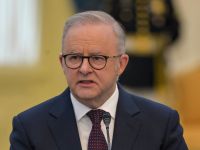Multicultural diplomacy and reaching out to youth can have great effect in building the future and making amends in many parts of the world. Al Bawaba interviewed UN young advisor Daniel del Valle Blanco, who contributed effectively to UN Youth 2030 Strategy and one of the most passionate leaders of the "Ambassadors of Change" initiative to empower youth and enable more dialogue and support for communities in many parts of the world and keep hope that there's so much being done to make the world a better place on many levels.
Al Bawaba: Have you always wanted to be a diplomat? How does your background in Economics fall into that?
Daniel: As far as I remember, I have always been keen on engaging with people, interactions, and communication. It empowers me and it is definitely in my DNA. Later, also through culture, music and foreign languages, I realised that it was exciting to share with others also across cultures and continents.
I got fascinated by the world of diplomacy, in particular multilateral diplomacy and the United Nations, where all nations are represented and where you work on solutions for global challenges, through dialogue and mutual understanding.
My law and economics qualifications fall into it very well. They are a great asset when addressing the global challenges across all three pillars of UN work (peace and security, socio-economic development, human rights). I believe all multilateral diplomats need to have some professional training and experience in all those three pillars.
Al Bawaba: What are you most passionate about and think you can leave your mark on in your current role as Policy Advisor to the Ambassador and Permanent Representative of the Slovak Republic to the United Nations in New York?
Daniel: I am a passionate communicator, connector and facilitator, especially as far as the youth is concerned. In recent years I have developed a great network of colleagues, friends and contacts among young people and also in the worlds of politics, diplomacy and culture all around the world.
I believe people trust me and rely on me and it is an excellent basis for developing more relationships and alliances, firming up the existing ones and building up my professional career. But it is also a strong commitment on my end. It is almost a daily full-time job for me that I have gladly dedicated a lot of time and energy to.
This is exactly how I got connected also to the Permanent Mission of Slovakia to the UN in New York and to Ambassador Michal Mlynár, who is a youth champion himself. So it was definitely not a coincidence.
I am very grateful for this excellent opportunity, professionally and personally. In my role as Policy Advisor to the Ambassador, I have worked practically on all their priority areas, which include peacebuilding, Security Sector Reform (SSR), UN General Assembly revitalisation, 2030 Agenda for Sustainable Development, education, rule of law, human rights, etc. But the two main priorities have been YOUTH and CITIES. We have assumed specific coordination roles in those areas and have been able to literally shape up the future of relevant UN policies.
It has been a fascinating and defining experience for me by all means. My own contributions have been mostly in ensuring that young people's perspectives are well reflected in the planning and implementation phases of those UN processes, facilitating direct youth participation and involvement and offering some innovative approaches to the extent possible. 
Al Bawaba: Tell us about the UN Youth 2030 Strategy launched by UN Secretary-General António Guterres in September 2018 and the work of the Office of the UN Secretary-General’s Envoy on Youth, what was your role and your most proud moments?
Daniel: The UN Youth 2030 Strategy is truly a ground-breaking document, the first such comprehensive UN strategy. Ms. Jayathma Wickramanayake, the UN Secretary-General's Envoy on Youth, and her Office are working hard to ensure that the strategy leads to better coherence, coordination and complementarity of UN youth policies across the UN system and primarily that it results into tangible results on the ground, especially in developing countries, in line with the overarching principle of the whole 2030 Agenda for Sustainable Development: to leave no one behind.
In other words, there is a need to translate good words and good intentions into action and to rally the whole UN system behind it - UN resident coordinators, main UN agencies, funds and programmes, such as UNDP, UNICEF, UN Women, etc. Precisely with this intention Slovakia has decided to serve as a catalyst of the UN Youth 2030 Strategy implementation and has also invited four other UN Member States to form a cross-regional support group (El Salvador, Portugal, Rwanda, Sri Lanka).
We have organised many briefings, informal interactions and hosted strategic forward-looking discussions. The Youth Envoy, Ms. Jayathma knows that she can always rely on us and on me. And she counts on our and my support in many of her crucial initiatives. Most recently, I had the opportunity to co-host and co-moderate an inspiring informal dialogue of UN Deputy Secretary-General, Ms. Amina J. Mohammed with young diplomats, youth advisors and youth delegates. It was very motivational for all of us and for me personally it provided another strong impulse to keep working hard.
Al Bawaba: You say that your Christian and humanistic values have enabled you to provide the aforementioned diplomatic missions with invaluable assistance in areas such as humanitarian aid, human rights, education, peacebuilding, public and cultural diplomacy and social media. Can you give us examples?
Daniel: Indeed, I am proud of my Christian and humanistic values that I was brought up with in my family and I have been very fortunate to find people who not only share them but who are guided by them in their everyday lives too, like me.
Such close cooperation and partnerships with the Ambassadors of the Permanent Mission of Slovakia to the UN (Dr. Michal Mlynár) and the Permanent Observer Mission of the Sovereign Order of Malta to the UN (Dr. Paul Beresford-Hill), would have never been possible without our values, which we do not take for granted. The UN is primarily a peace project and through all our work we should serve the people, in particular the most vulnerable and disadvantaged ones. The current COVID-19 pandemic is yet another strong reminder of it, too.
Creating more feasible conditions for peace, enabling for various types of assistance to reach the neediest ones, delivering humanitarian aid, including to children and young people - it all requires understanding, compassion and solidarity. I would also call it "the greater purpose", which you cannot lose sight of even if you are tired, stressed out or overloaded with bureaucratic duties.
Part of my job has been to ensure that on an everyday basis we factor in the legitimate needs of our young people, that we offer them enough platforms to speak and that they have a real say about the state of affairs, today. As I often say, the future starts now and the future generations begin with the present young generation.
Al Bawaba: Can you tell us about your valuable work in supporting the development of young people (“Ambassadors of Change”)?
Daniel: I have proudly become one of the flag-bearers of the concept, also trying to be an Ambassador of Change in my own life and career - through social activism, participation, communication, inspiring. But also through listening to others, in particular to other young people that I know and I interact with every day.
It is a concept that motivates and empowers and I would like to use it even more widely for youth involvement and activism in the 2030 Agenda context - through social media, in grassroots campaigns, for promoting innovative ideas and solutions, for mobilising more and more young people all over the world. I am very excited about it, also about potential partnerships in this regard with foundations, civil society and the private sector.
You have also asked me about cultural diplomacy and social media. I believe they are powerful tools. Culture and diplomacy in many ways share the same purpose - providing for peace, harmony and mutual understanding.
I am proud to also be a dedicated Cultural Diplomacy Ambassador and I spare no effort in always featuring them together and promoting them as mutually reinforcing partners. Social media platforms offer me an opportunity to amplify the same principles and messages and get more and more young people to engage and participate. Those are then genuine Ambassadors of Change. And I can tell you that it really works.
(The term "Ambassadors of Change" was first used by Ambassador Mlynár in an ICT project for rural secondary schools in Kenya in 2012. On the basis of new opportunities provided to them, it was meant to inspire and motivate young Kenyans to bring about positive change into their own schools and communities.)
Al Bawaba: What is your opinion of the ever exploding refugee crisis? and what do you think has worked most from your experience to help refugees?
Daniel: As I have already mentioned, we need to be driven more by understanding, compassion and solidarity. The same applies also to the situation of refugees, whether they are from Syria, Yemen, Libya, Venezuela, Haiti or any other parts of the world. They flee armed conflicts or serious humanitarian situations and it is our moral obligation to offer them our help and support.
We have solid national and international legal instruments defining the status of a refugee. UNHCR is doing a great job, addressing numerous refugee crises and situations around the world and providing the assistance needed. I have been directly involved in Spain in an important campaign called "We Are All Migrants" ("Todos Somos Migrantes") regarding refugees and migrants coming primarily from Venezuela and/or Haiti.
It has been aimed at assisting those in need and also sensitising the population in Spain and in other European countries about the importance of understanding what is going on and why and supporting the necessary action, even though it may sometimes be a bit outside of our traditional comfort zones. This has been part of my social activism, of my mandate as Ambassador of Change, youth champion and social media influencer.
Al Bawaba: Have you worked with refugees from the Middle East?
Daniel: No, not so much yet, unfortunately. As I have already mentioned, I have been, in practical terms, focused more on refugees and migrants from Venezuela, Haiti or from other parts of Latin America. However, I have learned a lot also about refugees and migrants from the Middle East, but more on the policy level from the UN and New York perspective.
Al Bawaba: As an accomplished singer, a former soloist of the Escolania Boys’ Choir of the El Escorial Royal Monastery of Spain, how do you balance your music with your diplomatic life and does one inspire the other?
Daniel: In fact, as a soloist of the Escolania Spanish Royal Boys' Choir of the El Escorial Monastery, I had the opportunity to visit many countries of the world, including the United States, China or Russia, and I had a chance to sing for, meet and interact with many important national and international public and political figures, including members of royal families.
It taught me a lot, offered me some good exposure and inspired me a lot, gave me a strong desire to spread my wings also to the world of diplomacy. So these two worlds of mine are inter-connected to some extent. But I do not want to mix them. I would like to deserve and build my position in both of these worlds on their own merits. I am committed to doing it, equally diligently and passionately. Music has been and will always remain my passion, a matter of my heart.
Diplomacy has been giving me tremendous energy and professional satisfaction, it completes me as a person, through a sense of strong professional and personal purpose in life. But there are also ways how these two worlds reinforce each other and are partners, as I have mentioned earlier. Cultural diplomacy will always be my thing, too.






